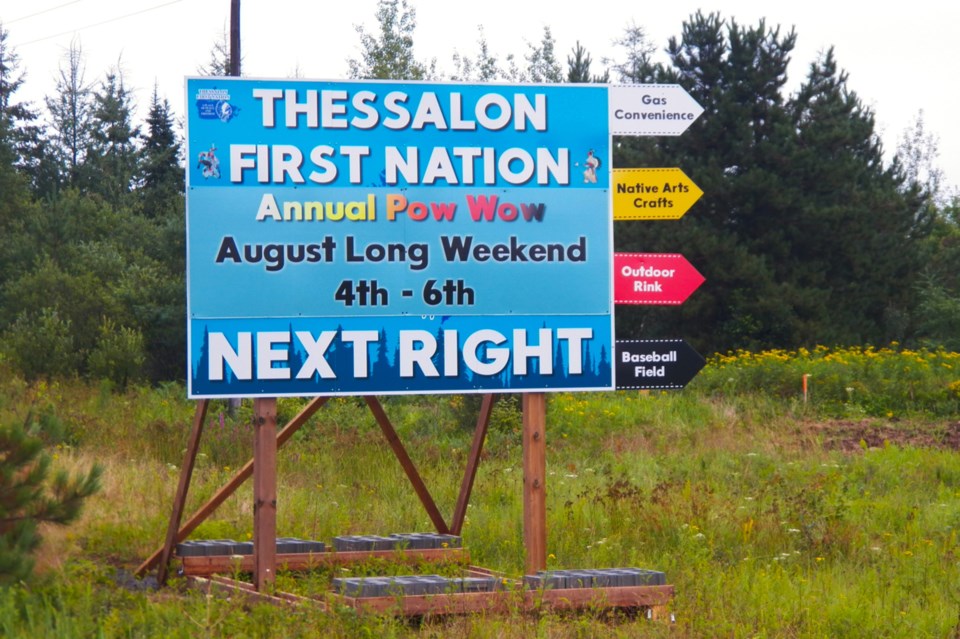While some members of Thessalon First Nation have already received their payout, Courtney Valjakka missed out on collecting $220,000 from the Robinson Huron Treaty settlement for past compensation — by just three days — over a technicality.
The Whitby, Ont., resident applied to Indigenous Services Canada (ISC) in 2022 in order to receive her certificate of status under the Indian Act. She was approved more than a year later, narrowly missing the Sept. 9, 2023, cutoff date imposed by the First Nation.
That means Valjakka and other individuals who did not receive their status cards by the cutoff date have now been placed under a one-year probationary period until leadership decides if they are members or not.
“I have been trying to reach out to chief and council — phone calls, emails, letters — and I have not had any response from them, and multiple people have had that experience as well,” she told SooToday. “Now, we’re not even being spoken to. It’s very difficult.”
Last year, Canada and Ontario reached an historic $10-billion settlement with 21 First Nations for past compensation after the Ontario Superior Court ruled the Crown was obligated, under an augmentation clause contained in the 1850 treaty, to increase annual treaty payments — also known as annuities — as wealth generated through resource extraction in Robinson Huron Treaty territory continued to grow.
But Valjakka says that when Thessalon First Nation received its first payment of approximately $245 million in settlement proceeds last month, chief and council reneged on an earlier promise made during a community meeting in April to include those who received their status cards after the Sept. 9, 2023, cutoff date, or are still in queue to receive their status cards from ISC. She says that Thessalon’s new policy not only contradicts previous statements made by chief and council, but also goes against the advice of Robinson Huron Treaty Litigation Fund lawyers.
“Chief and council, this is a call to action for you. You have made commitments publicly, it is wrong to retract your statements and leave your members behind,” Valjakka said in an open letter to chief and council that surfaced on social media last month. “There is time to change your per-capita distribution model to include all of those either with or waiting for status.”
A frustrated Valjakka has since launched a Facebook group, Thessalon First Nation - Members Left Behind, in order to collect the personal stories of those who have been deemed ineligible to receive settlement proceeds. The group now has more than 90 members.
In her open letter to chief and council, Valjakka contended the individuals who are being left behind in the settlement were "Indigenous at birth," no matter how long it takes for ISC to process an application.
“There’s families where ISC was quicker processing their application, so we have a family of five siblings — three siblings are getting part of the settlement, and two are not,” she said. “There are countless stories like that.”
In Valjakka’s case, her great-grandmother grew up in Thessalon First Nation, but lost her status when she married a non-Indigenous man. Both her grandmother and father eventually received their status as eligibility requirements morphed over the years, making way for Valjakka to apply for hers.
“Now that I finally got there, I have this whole other hurdle: The community doesn’t accept me yet, and I don’t know when that will be — or if they will, because I have been quite vocal with chief and council about how I feel this settlement has been handled,” she said. “A lot of probationary members are a little bit worried about speaking their mind about it, because they don’t want to be denied membership.”
It’s currently unclear how many people have been placed under the First Nation’s one-year probationary period. Thessalon First Nation Chief Joe Wabigwan shot down a request for an interview made by SooToday this week. “No comment and have a great day!” Wabigwan said.
Valjakka only decided to go public with her complaints concerning the distribution of settlement dollars after weeks of not hearing back from chief and council.
“We are a dwindling population, therefore new members should be welcomed by chief and council, not treated like second class citizens,” said Valjakka in her open letter to leadership. “This is your chance to make things right.”
